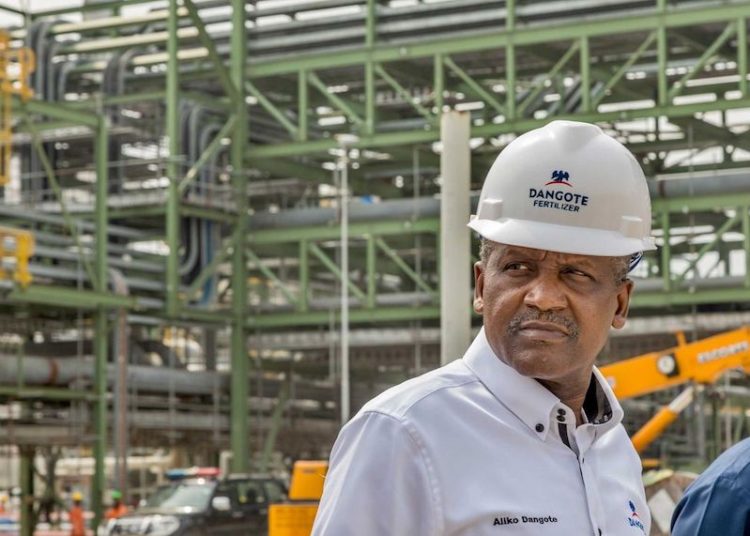The commencement of full operation by the $20 billion Dangote Refinery and the roll-out of locally refined fuel with international quality and standards as a unique national feat worth celebrating by all progressive minded Nigerians.
The accomplishment, according to the Tinubu Media Support Group (TMSG) , is the first time a private entity of that magnitude and monstrosity would be involved in the domestic refining of fuel and other petroleum products on a large scale in the country.
In a statement signed by its Chairman Emeka Nwankpa and Secretary Dapo Okubanjo, TMSG noted that the President Bola Tinubu administration deserves a huge praise for midwiving the delivery and giving life to the Dangote Refinery
The statement read partly: “It is indeed a great feat that Nigerians can now rely on locally refined fuel for their energy needs and consumption after several years of over depending on imported fuel.
“For us, it tallies with President Tinubu’s oft-repeated stance that no raw material should leave the country without some form of value added, being the basis for genuine development.
“This is why the Tinubu administration continued from where the preceding government of former President Muhammadu Buhari stopped by providing the Dangote Refinery the necessary support it needs in order to end decades of fuel imports for domestic consumption.
“It is public knowledge that when all the four government-owned refineries in the country were finally shut down in 2020 for total rehabilitation by the then Buhari administration, they had been operating below their name-plate capacity since the early 2000s. This meant that Nigerians had depended almost totally on fuel imported by oil marketers for years.
“But unknown to many Nigerians, this development paved way to a long running scam that was finally unearthed in 2012 by a Presidential Committee and the then House of Representatives which indicted about 20 companies for a $6bn scam.
“We can also recall that the technical committee found out that the number of firms importing fuel increased from six in 2006 to 140 by 2011, suggesting that something was wrong somewhere.
“So, for a private company to dabble into a field that the government had struggled in for decades and to begin operations on a full blast, churning out petroleum products for internal use and for exports is no mean feat.
“It is against this backdrop that we urge Nigerians to look beyond the initial problem of pricing mechanism between Dangote Refinery and the Nigerian National Petroleum Company Limited (NNPCL) and see the roll out of locally refined fuel as something worth celebrating in the first place.
“We see it as the beginning of new things. This is because the country is at the threshold of a total halt to fuel imports, especially as we look forward to the completion of the ongoing rehabilitation of the four government owned refineries.
“This will certainly translate to an end to fuel shortages and the consequent long, winding queues which have been an annual ritual and the vagaries of operational complexities attachrd to fuel importation.
“Beyond that is the reality that the country is now home to Africa’s largest refinery and the largest single-train refinery in the world sitting on over 2,000 hectares of land. The pipeline infrastructure at the Dangote Refinery is said to be the largest anywhere in the world, with 1,100 kilometres handlimg 3 billion standard cubic feet of gas per day.
“The optics are indeed good, and a clear signal has been sent to the world on Nigeria’s readiness to play host to huge investments. It is an accomplishment that the world would see as a true representation of our status not only in Africa but also as an emerging economy in the world.
“We also agree with the notable entrepreneur Femi Otedola, who is emphatic that President Tinubu has been instrumental in ensuring that the Refinery gets all the support it requires from the authorities.”
TMSG is convinced that Nigerians will have more cause to smile as soon as the President’s directive on the sale of crude to Dangote Refinery in naira takes effect in October.














